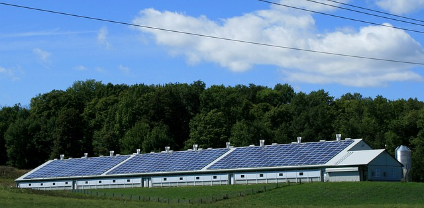현재 장바구니가 비어 있습니다!

[2024-08-06 Korea Economic News] Challenges Arise in Recovering Principal for Members of the Gimpo Sawoo-dong Redevelopment Project
Korean Housing Market Challenges: The Case of Gimpo Sawoo-dong
The recent turmoil in the housing project sector in Korea has become a talking point, particularly focusing on the Gimpo Sawoo-dong region. Due to the dramatic rise in construction costs, several housing cooperative projects are facing significant hurdles, with particular emphasis on the issue of additional contribution payments from the members. This blog post will delve into the intricate factors behind these challenges and the implications for the stakeholders involved.
Impacts of Construction Costs in Gimpo Sawoo-dong
In recent times, the Gimpo Sawoo-dong regional housing development has been in the news, particularly due to its exasperating situation. The housing project’s construction costs have soared tremendously, attributing to the growing concern among members of the housing cooperative. As a result, the possibility of recovering the initial investments made by the cooperative members appears slim.
Specifically, the area has undergone a remarkable decline in project viability. What was once a promising venture has now led to serious financial burdens for its members due to the inability to manage the escalating construction expenses efficiently. Many members are left pondering their options as they struggle to address the new financial reality.
Challenges with Additional Contribution Payments
The pressing concern regarding additional contribution payments has become a focal point of the discussions surrounding the Gimpo Sawoo-dong housing project. Members of the cooperative are grappling with the need to contribute more, complicating their financial situation further. This challenge is compounded by the fact that many institutions are withdrawing from funding, making it harder to secure loans and financial assistance.
Banks and financial institutions have become increasingly stringent with regard to lending, citing the instability in the housing market. As a result, cooperative members often find themselves in a precarious position, unable to meet the additional financial demands while also managing their existing commitments. This lack of financial fluidity significantly stalls progress, hindering the overall development of the project.
Market Value Declines: The Aftermath of Bidding Failures
The situation has worsened with the project site enduring fifteen unsuccessful bidding rounds. Following this barrage of last-minute setbacks, the market value of the property plummeted to approximately 4.2 trillion KRW, significantly lower than its appraised value. This decline represents around 40% of what was previously anticipated and emphasizes the dramatic shifts in property values within the region.
In a climate where housing demand is generally high, such drastic reductions in price signal concerning trends in the market. This brings attention to how external factors, including governmental regulations and increased interest rates from financial institutions, are squeezing both developers and potential homeowners alike. The latest updates from Korea Economic News have highlighted these ongoing issues, keeping the public informed of the precarious state of the housing market in Gimpo Sawoo-dong.
The Role of Financial Institutions in Housing Development
The delicate balance between construction costs and prices in the housing market is being further unsettled by financial institutions tightening their lending practices. With the rise of construction costs and developmental challenges, banks are increasingly cautious regarding their exposure in the housing sector. Many cooperative members are finding themselves in a position where securing financing is not only crucial but also incredibly difficult.
Moreover, the declining property values force members to reconsider their strategies when it comes to financing their investments. Many are now relying on informal financial arrangements, which could potentially lead to long-term consequences if the housing market does not stabilize soon. The implications of these market shifts raise questions concerning how future housing projects will navigate these turbulent waters, especially in regions like Gimpo Sawoo-dong.
Looking Ahead: Possible Solutions for Cooperative Members
In light of the current challenges faced by the Gimpo Sawoo-dong housing cooperative members, it is essential to contemplate viable solutions. One possible avenue could facilitate open dialogues among members and financial institutions. Constructive conversations may lead to reevaluation and potentially renegotiation of terms that could benefit all stakeholders involved.
Additionally, cooperative members could explore alternative funding opportunities, such as governmental grants or subsidies that may alleviate some of the financial pressures they are experiencing. Shared resources might also provide a channel to manage collective risks more effectively. Such avenues offer hope in an otherwise bleak scenario, allowing members to recuperate their original investments while navigating the uncertainties ahead.
As mentioned in the Korea Economic News, fostering a cooperative approach could be the bedrock of future success, assisting members in overcoming financial obstacles posed by rising construction costs and declining property values.
Conclusion: Navigating the Future of Gimpo Sawoo-dong Housing Projects
The ongoing challenges within the Gimpo Sawoo-dong housing project underscore the complex dynamics affecting the Korean housing market today. With escalating construction costs, increased financial pressure from banks, and a significant drop in property values, the path forward requires a united effort from all stakeholders, including cooperative members, lenders, and governmental bodies.
Korea Economic News continues to provide pivotal updates on these matters, ensuring that the public remains informed of the developments that shape the housing scene. By fostering collaboration and exploring alternative avenues for financial support, there may yet be a silver lining for the members and the community at large.
For more valuable insights and information, feel free to visit walterlog.net!